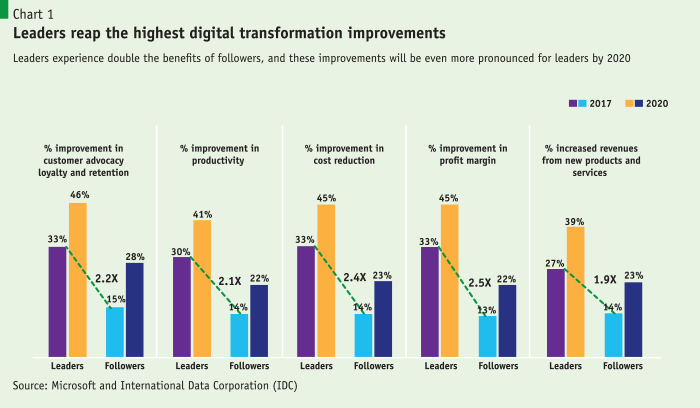Winners take all in this digital transformation race
By
Every organisation needs to accelerate the digital transformation of their business to effectively compete and stay relevant to customers. This requires changes in metrics, in organisational structures and in the technology platform that enables this transformation. While such a viewpoint may have been controversial five years ago, it is certainly not the case today: digital transformation is a key item on the agenda for C-suites, boardrooms and even governments.
The progress of digital transformation in Bangladesh, much like in its South Asian counterparts, is commendable. The government is leading the country’s digitalisation movement, and businesses, too, are echoing the government to realise the vision of a Digital Bangladesh by 2021.
Within this vision, the government has undertaken several projects to achieve digitalisation in the public and private sector. For example, it has been working extensively on ensuring e-governance is made accessible to the public on digital platforms. From online procurement of public projects, collection and submission of academic admission forms, job applications and collection of official forms, to online tax returns submission, digitalisation has spread its wings in all spheres of public services. In fact, the government has delivered 6 million e-services to 4.5 million beneficiaries on average per month through 407 City Corporation Digital Centres, 321 Pourashavas Digital Centres and 4,547 Union Digital Centres.
…the government has delivered 6 million e-services to 4.5 million beneficiaries on average per month through 407 City Corporation Digital Centres, 321 Pourashavas Digital Centres and 4,547 Union Digital Centres.
The race to transform
Microsoft recently partnered with the leading technology advisory firm IDC (the International Data Corporation) to assess the digital transformation landscape across the Asia Pacific. Titled ‘Unlocking the Economic Impact of Digital Transformation in Asia Pacific’, the study involved some 1,560 business and IT leaders from 15 economies including Australia, China, Hong Kong, Indonesia, India, Japan, Korea, Malaysia, New Zealand, Philippines, Singapore, Sri Lanka, Taiwan, Thailand and Vietnam.
The study clearly showed that there would be widespread disruption to the traditional business and operations models of all organisations – approximately 60% of Asia Pacific’s gross domestic product (GDP) will be derived from digital products and services by 2021, created directly through the use of technologies. In comparison, only 6% of Asia Pacific’s GDP today is derived from digital products and services. This is the speed of change that all organisations must grapple with.
…approximately 60% of Asia Pacific’s gross domestic product (GDP) will be derived from digital products and services by 2021, created directly through the use of technologies. In comparison, only 6% of Asia Pacific’s GDP today is derived from digital products and services.
Imagine that you are operating a fast-fashion clothing chain in Bangladesh. By 2021, half of your business will be derived from online or digital channels.
The study has shown organisations are seeing significant and tangible benefits from their digital transformation efforts today. The top five digital transformation benefits that organisations experienced include increased profit margins, productivity, customer advocacy, loyalty and retention, cost reduction and revenue from new products and services.
Winners take it all
However, discussions with many business leaders in Bangladesh do not point to a uniform sense of urgency about their digital transformation journeys. Some leaders prefer for others to be the trailblazers, and then to learn from these digital transformation pioneers. One important question is then to consider, is digital transformation a race where the winner takes all?
The aforementioned study also shows that the pace of transformation makes a difference, much like the way an efficient pace is key to raising your chances of winning a long-distance race. We have classified the organisations participating in the study as ‘Leaders’ and ‘Followers’ based on a few factors: the maturity of their digital transformation strategies; the proportion of their digital income; and the level of benefits achieved from digital transformation initiatives. With these filters applied, only 7% of organisations in this study can be classified as leaders.
More importantly, the study shows that leaders have reaped the highest digital transformation improvements – to the tune of more than double the benefits from digital transformation compared with for the followers – and the effect is expected to be more pronounced by 2020.
In fact, we are already seeing digital leaders in action in Bangladesh. For example, a trio of Bangladeshi students made it to the final of Imagine Cup 2017, showcasing immense potential. Team Parasitica, a group of students from Bangladesh University of Engineering and Technology, competed with young innovators from different corners of the world in Seattle, USA, last year with its ‘fasTnosis’ app, which uses Microsoft’s Artificial Intelligence (AI) tools to more accurately diagnose patients via inputs of microscopic images. The medical diagnosis app can screen tuberculosis, malaria and intestinal infections, helping millions of affected people. This shows that, with the right tools and platforms, our youth are able to transform the way people access medical diagnosis.
Learnings from winners
So, what lessons can these digital transformation leaders from this study provide? These are four recommendations for organisations to help them succeed in their own digital revolutions:
- Create a digital culture: Culture is the multi-layered core at the heart of every successful organisational digital transformation. In an increasingly digital world, a digital culture cannot thrive if an organisation operates in silos with disconnected or under-connected business functions. Importantly, digital transformation will not be optimised if organisations do not collaborate with external customers and partners. The study shows that leaders benefit most from a full digital transformation strategy in an ecosystem of customers, partners and employees working together. Data must be embraced as part of every piece of work done in an organisation. Data analytics can be used to take products and services to the next level. Companies that emphasise big data analytics, as the leaders are already doing, will build strong foundations for emerging technologies like AI and Internet of Things (IoT) to accelerate their respective digital transformation efforts.
- Build an information ecosystem: In a digital world, organisations have access to more data than ever before from both internal and external sources. Both the opportunity and the challenge are to bring all these data together, to analyse them and then use them in ways that contribute to better decision-making and better outcomes. Data capitalisation is key to success in the digital economy – to convert these data into capital assets and monetise them, there needs to be data-sharing and collaboration not just within the organisation but also externally, with customers and partners, in a trusted manner. A proper data strategy that produces real and measurable datasets allows organisations to start taking advantage of the power of AI in identifying connections, insights and trends that are not yet obvious.
- Embrace micro-revolutions: In most cases, digital transformation efforts do not start with an organisation-wide plan of change, but rather with a series of micro-revolutions. These are small, quick wins that deliver positive business outcomes, and at the same time accrue to bigger and bolder digital transformation initiatives. We see this digital momentum in leaders, who are less risk-adverse and even often embrace both fail-fast and learn-fast approaches. This mindset will ultimately enable organisations to be at the forefront in reaping benefits from emerging technologies such as AI.
- Develop future-ready skills for individuals and organisations: Organisations today must relook at training and reskilling their workforce so that talent is equipped with future-ready skillsets such as complex problem-solving, critical thinking and creativity for the digital economy. At the same time, they need not only to put in processes to retain and attract key digital talent but also to be open to creating a flexible work-source model that lets them tap into skills-based marketplaces.
 The study has shown us that, in this high-stake digital transformation race, leaders reap the greatest rewards, and will command stronger positions in the exciting digitally fuelled world we are heading towards.
The study has shown us that, in this high-stake digital transformation race, leaders reap the greatest rewards, and will command stronger positions in the exciting digitally fuelled world we are heading towards.
History has also shown that, during these industrial paradigm shifts, old business models often become extinct, taking out entire organisations and even industries at the same time.
If there were only one question that you should ask yourself as a business leader, it should be this: Is your organisation in a position to be a digital transformation leader today?





